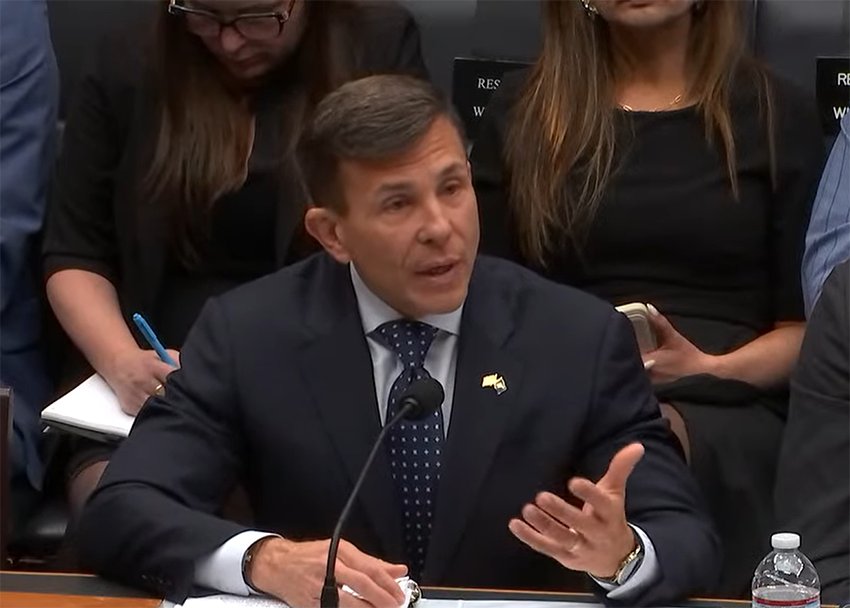J.P. Morgan’s massive Healthcare Conference wrapped last week. BIO was busy as ever in San Francisco, connecting companies with potential partners, discussing innovation, and helping the industry understand the upcoming policy and investment landscape.
Here are the top 5 BIO updates from the 2024 J.P. Morgan Healthcare Conference, from hot topics like weight loss drug innovation and AI to what’s on the horizon for policy.
1. Obesity treatments were on everyone’s minds
GLP-1 agonists were the unequivocal star of JPM. The unabashed recent scientific successes of Ozempic,Victoza, Wegovy, and Saxenda predict a strong investment cycle [SS1] for these treatments in the next few years.
And indeed, GLP-1s are notable and exciting when it comes to drug technology, patient benefit, and investment potential, to say the very least. Additionally, so far, the adverse event profile of these drugs is quite low, meaning that their market potential is even more promising.
Originally developed for type 2 diabetes, GLP-1s can help patients lose 10–20% of their body weight and often avoid the myriad detrimental effects of later-stage type 2 diabetes. Additionally, for patients battling persistent obesity, these drugs can give them an avenue towards better health and a new lease on life—without the threat of cardiovascular events or the like. These benefits also bode well for the larger healthcare industry and could even potentially reduce Medicare and Medicaid costs when these drugs are responsibly prescribed by physicians.
However, the payment structure for these drugs on the part of patients still needs to be figured out—a reality that is not surprising given how recently these drugs were developed and put on the market.
“The overall gist at JPM was that science continues to move forward, and the technology of GLP-1s is a testament to innovation that is extremely positive,” explained BIO’s Chief Advocacy Officer, Nick Shipley. “And having successful science and innovation (both as a therapy and as a commercial enterprise) is good for industry overall because it attracts investment and support into other assets. Everyone wants to invest in the next big hit. So, everyone should be applauding the work of the companies in question both as a scientific innovation but also because of what it means for showcasing your own companies in a capital formation environment.”
2. AI advances in the health and biotech sectors
AI in healthcare is poised to help innovation take an exponential leap forward in not only the development of drugs and treatments, but also in the direct care of patients. AI companies are looking to connect with the healthcare and biotech sectors to see exactly where and how this growth can happen.
Novartis and Eli Lilly announced Jan. 7 that they made a $82.5 million deal with Isomorphic Labs, a drug discovery firm under the Alphabet umbrella, to use the next generation of its AlphaFold technology to find and design new small molecules, reported C&EN.
Additionally, the Mayo Clinic unveiled its multimillion-dollar plans to develop a foundation AI model with a partner, AI startup Cerebras Systems. To develop their model, AI will study various structured and unstructured data, including “clinical notes, imaging reports, and lab values,” reported Fierce Healthcare.
3. BIO’s One-on-One Partnering™ is still breaking records
BIO has proven that it is the go-to convener for the biotech and pharma industry, and nowhere is that better seen than at the BIO One-on-One Partnering™ meetings.
Once again, BIO offered One-on-One Partnering™ to help companies find potential partners/investors and arrange meetings with them in San Francisco, as well as virtually, during the 2024 JPM.
BIO secured 40% more meeting space this year, which was used to max capacity with 1,600+ companies and 2,200 participants (including 560 investors) present.
As a result, BIO set a record number of meetings with nearly 6,000 meetings scheduled via the One-on-One Partnering™ program. Connections made using the system will continue to be after the event.
One can only wonder at the innovation and solutions that have been and will be advanced as a result of these partner meetings.
4. Companies are already feeling the impact of the Inflation Reduction Act (IRA) price controls
BIO’s Chief Policy Officer, John Murphy, participated in a panel at JPM on Inflation Reduction Act (IRA) updates to discuss what the biotech industry can expect. In particular, BIO is helping tiny biotechs think about how they can pursue their commercial launch strategies in the new environment.
To recap: Medicare price controls for top-spend drugs are set to begin Jan. 1, 2026, focusing on the small molecule market. The process began Sept. 1, 2023, and will be published no later than Sept. 1, 2024.
However, certain drugs will be exempt from price controls, including small molecule drugs approved for less than 9 years, biologic drugs approved for less than 13 years, orphan drugs, plasma-derived drugs, drugs with approved and marketed generics or biosimilars, and small biotech company drugs. There are also exemptions for some combination drugs, as well as the far less discussed exemption of drugs that are used entirely in the hospital inpatient setting and not separately reimbursed.
The importance of the ORPHAN Cures Act was highlighted.
“The orphan drug exclusion of the IRA is a really important component of the law, because the vast majority of the small companies are looking increasingly at orphan-targeted indications because of the very high unmet medical need and that broader rare disease space,” explained Murphy. “It is also important to start potentially convincing Congress to expand the orphan drug exclusion alongside expanding the ORPHAN Cures Act because that is a good vehicle to allow for future innovation to take place.”
Another area of discussion was biosimilars.
“Biosimilar products will continue to be an important component of the market for biologic products,” said Murphy. “Their market entry not only ensures competition following time-limited market protection for innovators, but also ensures the more draconian government price controls imposed by the IRA will not be a factor for those products that have market-based competition.”
5. BIO talks what’s next in biotech
 BIO Board Chair, Dr. Ted Love, sat down with STAT News for a panel, Biotech in 2024: The Year Ahead. But to look forward, the panel first reflected on a frustrating 2023 for biotech, which saw belt-tightening across the board, before things loosened up during the last quarter of the year.
BIO Board Chair, Dr. Ted Love, sat down with STAT News for a panel, Biotech in 2024: The Year Ahead. But to look forward, the panel first reflected on a frustrating 2023 for biotech, which saw belt-tightening across the board, before things loosened up during the last quarter of the year.
“I think the interest rates are going to be good for us. I think there’s been a significant flow of mergers and acquisitions and I think that’s going to continue. I think we’re going to have some positive tailwind in that regard,” said Dr. Love. “But I think, politically, we should be prepared for significant headwinds, mostly around rhetoric, and I would encourage people not to overreact to that, because I think that stuff is really going to be more for television and for voters than for actual substance.”
In an election year, the biotech industry will have to work a bit harder to maintain momentum, as well as address important healthcare issues. That is the nature of the two-year political cycle.
“I do think it is going to be potentially a frustrating year,” continued Dr. Love, “because in a political year, you tend to get a lot of politicians saying things that they think will generate support for their candidacy, not necessarily things that they can do or will do.”
On the political front, organizations like BIO understand the industry and how to engage with lawmakers, providing the education and context that those lawmakers need to enact effective and beneficial policy.
“Going into a senator’s office and saying, ‘You guys are idiots! You passed the IRA! It’s killing our industry!’ doesn’t get you anywhere,” explained Dr. Love. “What may get you somewhere is to go in and say, ‘Look, we share a lot of common objectives. We want innovation. We want to reduce the morbidity and mortality of egregious diseases. We want those therapies to be highly available. These are things that we all care about and are aligned on.'”
Whether it is lowering out-of-pocket costs or developing groundbreaking treatment, industry and many lawmakers have similar goals. The key is to make sure that industry and lawmakers can work together to help patients.
Luckily, the industry knows how to come together to solve problems, and there is no reason to think that will change.
“I think we have an amazing industry,” said Dr. Love. “It’s really a privilege to be in this industry. And I think we’ve just got to continue to do what we do and tell our story.”




